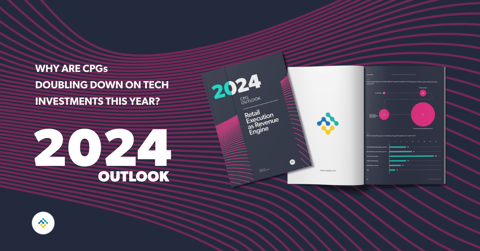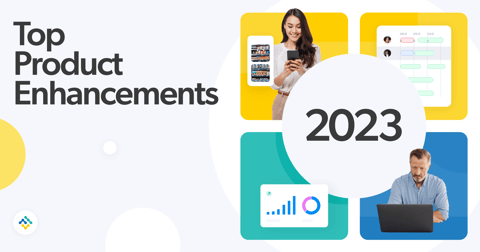 This week, we spoke with the founder of the international consulting firm Engage and co-author of The Shopper Marketing Revolution Toby Desforges. He offered solutions to what he sees as the three main issues with traditional shopper research practices; that it is they are too broad, too slow, and are not insightful. Check out three ways today’s business leaders can revolutionize shopper research:
This week, we spoke with the founder of the international consulting firm Engage and co-author of The Shopper Marketing Revolution Toby Desforges. He offered solutions to what he sees as the three main issues with traditional shopper research practices; that it is they are too broad, too slow, and are not insightful. Check out three ways today’s business leaders can revolutionize shopper research:
1. Remember the Scientific Method
Desforges’ said traditional shopper research projects are often unproductive because their scope is too broad. Nearly every aspect of the shopper experience is worth researching, but launching a project with a concise and clear objective results in truly actionable insights. But how will business leaders know how to narrow down their research objectives? Desforges said business leaders looking to develop meaningful objectives should remember the steps of the scientific method. He said, “the scientific method...is something most people forget about after grade school, but the principles hold true for [shopper] research.”
He said leaders developing a hypothesis about shopper research should keep two keys things in mind. The first is they should choose a focus that, if true, would have tangible business impact. Second, they should consider how easy a change would be to implement if their chosen hypothesis turns out to be true. For example, a quality research hypothesis could be “floor displays have no impact on shopper behavior.” If this hypothesis were true, removing floor displays could have direct impact on advertising budgets and it would be a relatively easy task for the organization’s field reps to perform.
2. Use a Software Solution
Desforges’ second concern with traditional research is that is often too slow. Before the field reps even have a chance to collect data, leaders must debate and decide on a research objective to study, get executive approval, and organize the collection process. While those steps have value and are usually unavoidable, there is one time-wasting practice that seriously puts the brakes on a research project. That is, the manual collection and re-entry of research data.
There are a few key issues that result from this practice. Aside from the time it takes to manually re-enter data from paper into a computer system, Desforges reminded leaders that this process often leads to what he called “dirty data,” or results littered with errors. “When you get dirty data” he said, “you have to cut elements of your sample...and sometimes you miss certain key responses as a result.” Desforges said software solutions that allow field reps to collect data on mobile devices both cuts out the time and error that often characterize data re-entry.
3. Work With the Findings
The last critical point Desforges made about traditional shopper research was that it is often not insightful. He said too many business leaders believe that a presentation of the research findings is the end of the research process, when in fact it is the beginning. Leaders must compare their findings against what Desforges calls “secondary data.” For example, if a business finds that shoppers in Territory X are purchasing less product than Territory Y, it would be helpful to compare that result against data detailing consumer socio-economic status in each location, to understand possible causes of this reuslt.
A second way to work with the findings is by presenting the information in a compelling way. Field reps are the key to successfully implementing change; if they are not able to engage with the findings, the effort spent on the research and the hope for change deteriorate. Desforges said, “people really only take notice of anything when they understand two things: one, they understand it’s important and, two, they can benefit from it.” To bring reps into the findings in a meaningful way, he said leaders should use language that focuses on the rep themselves. For example, the presenter could say “using the evidence here could help you reach your bonus early.”
To learn more about what’s new in shopper research, category management, and all things retail, visit Desforges’ blog at http://www.tobydesforges.com/.


 This week, we spoke with the founder of the international consulting firm
This week, we spoke with the founder of the international consulting firm 

